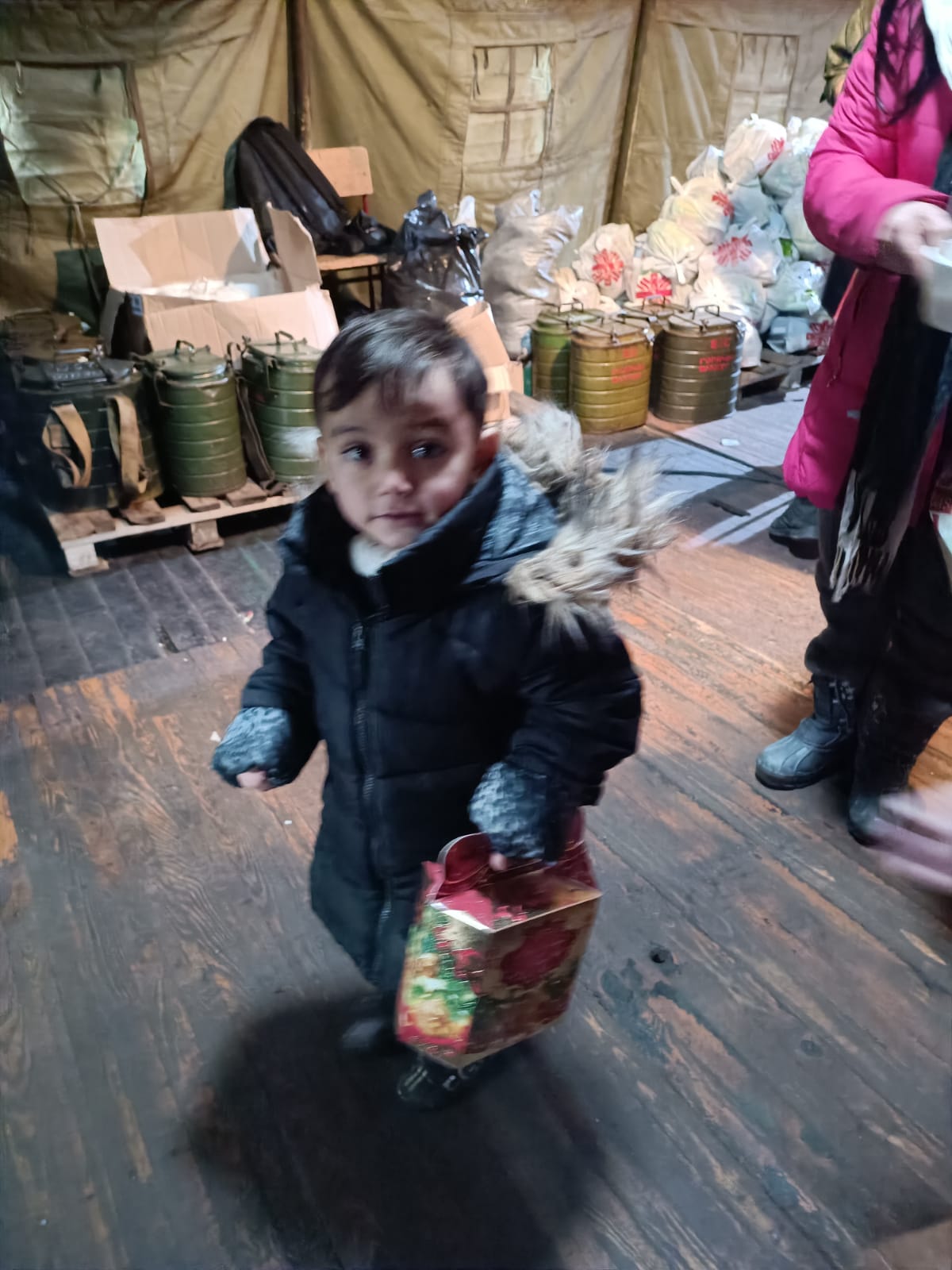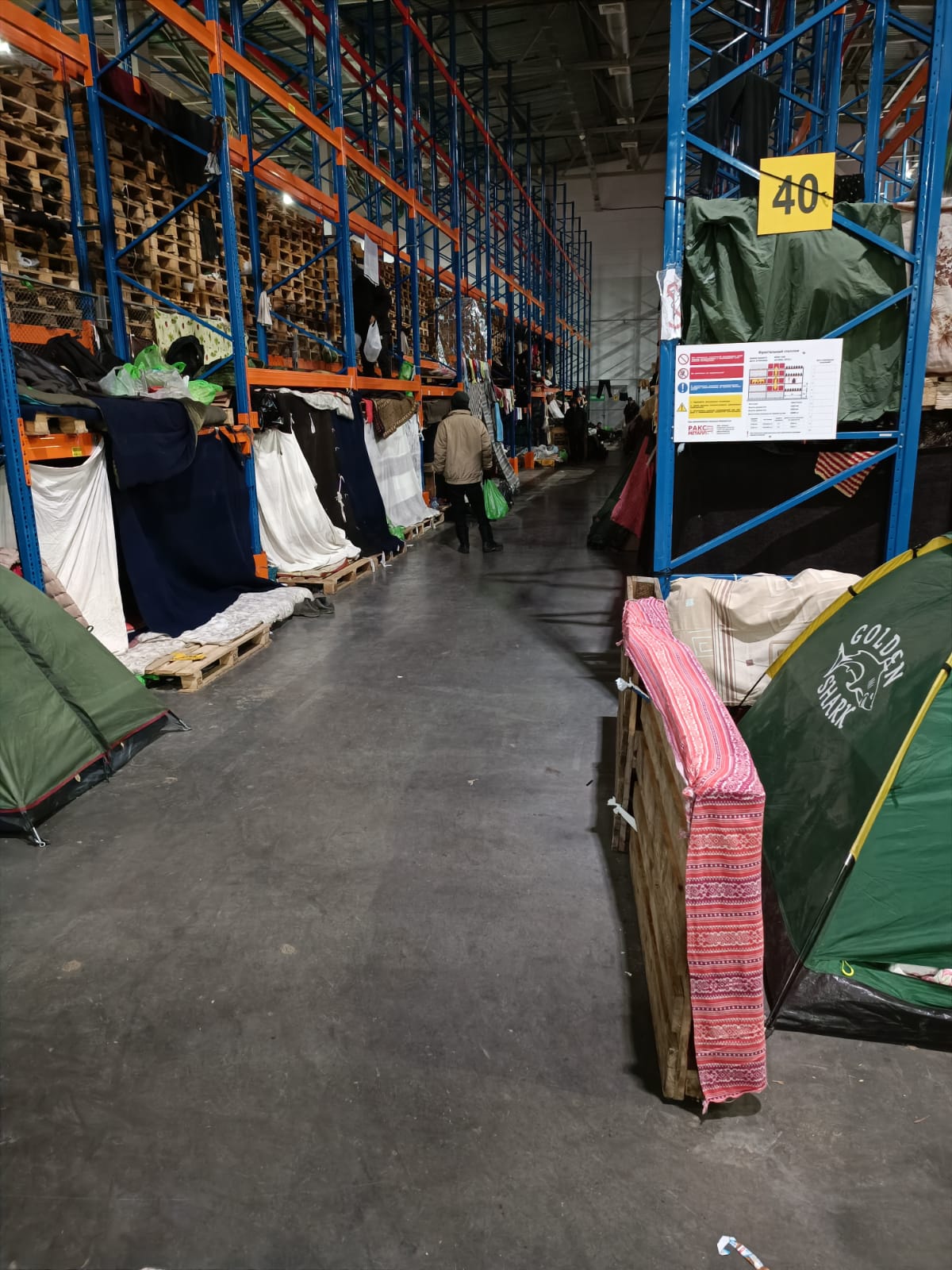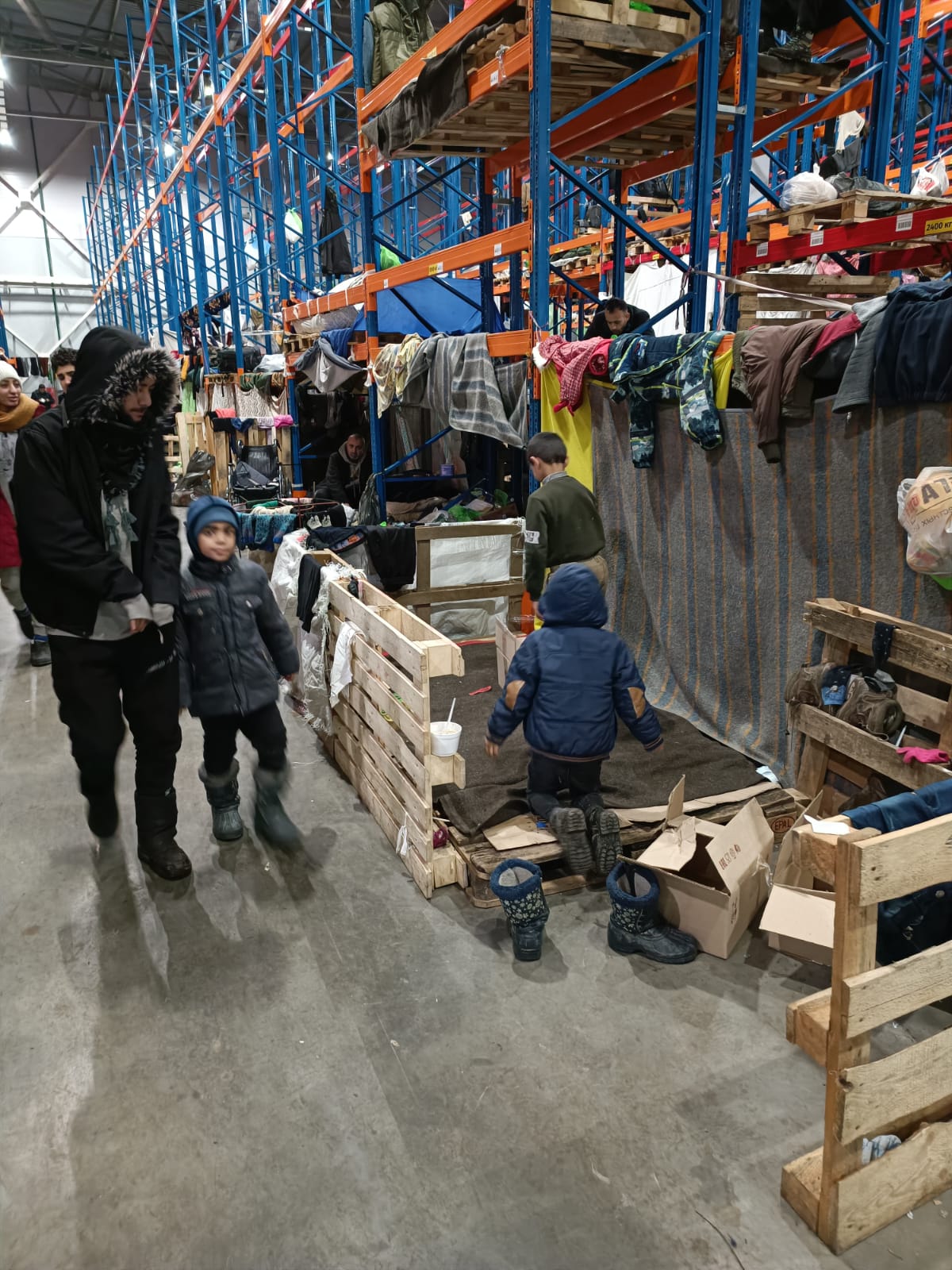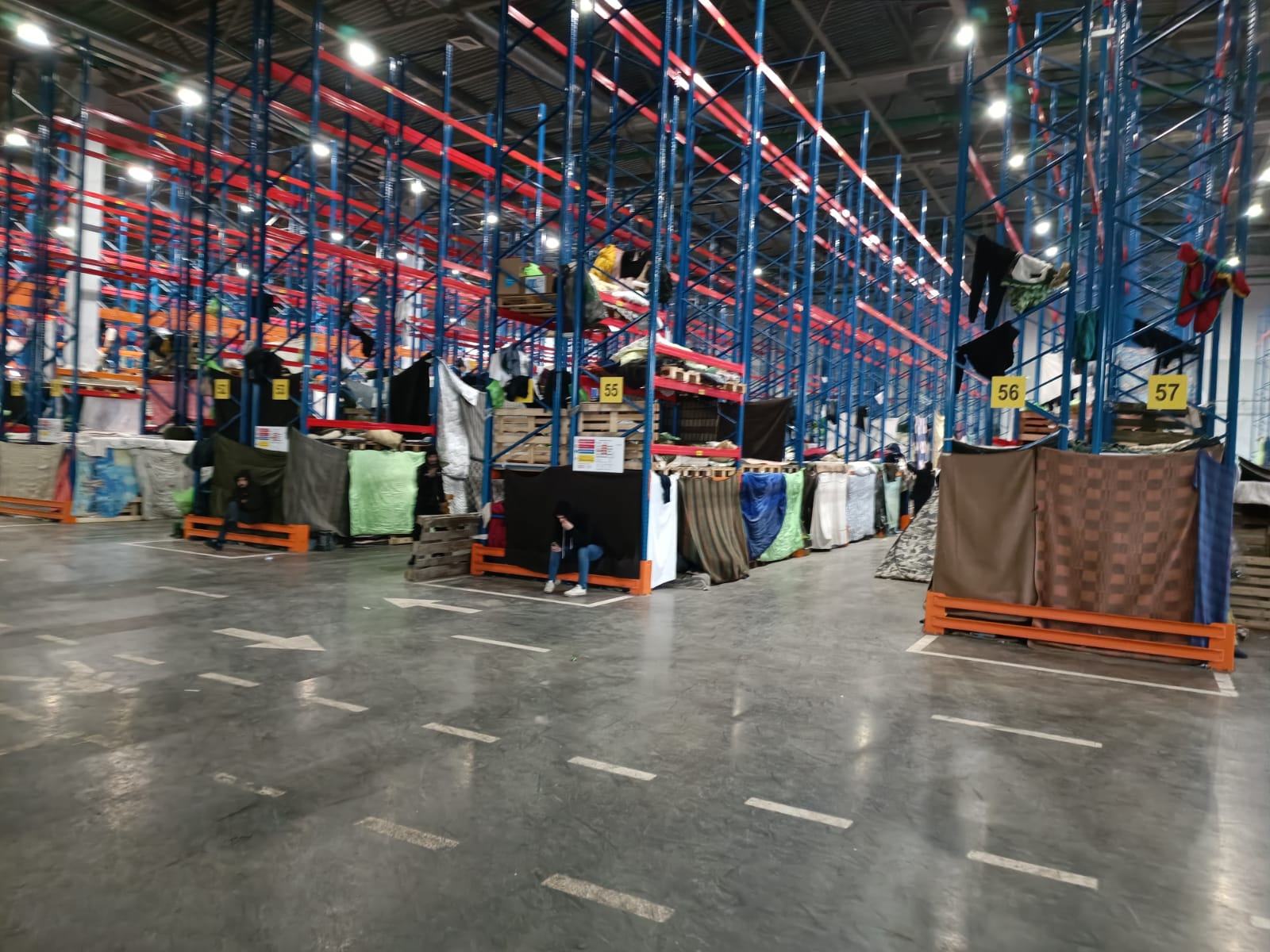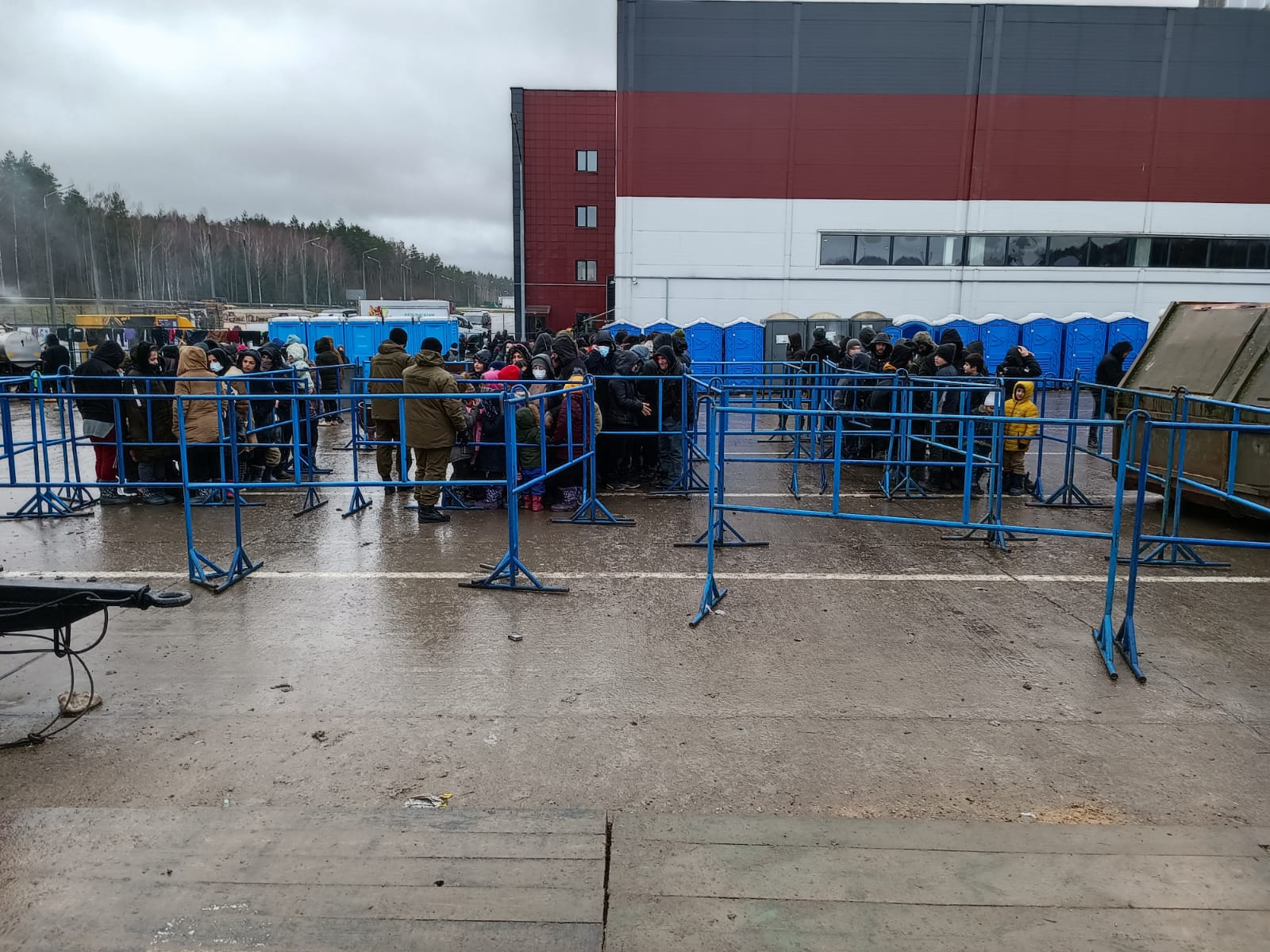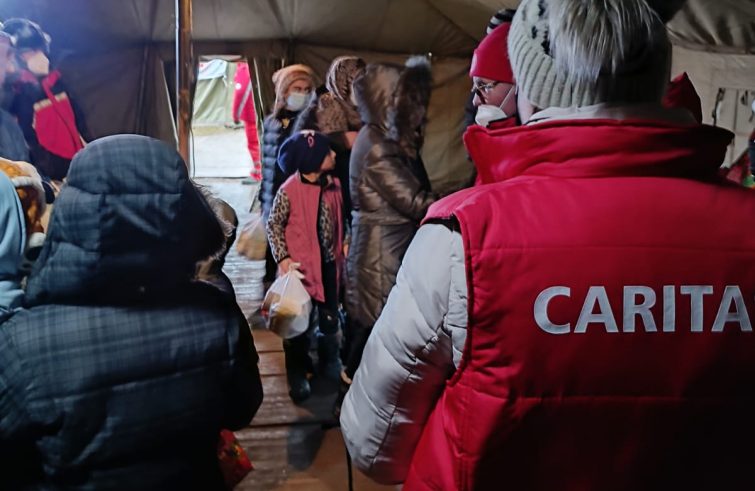
Warehouse facility for migrants on the Kuznica-Bruzgi border crossing between Belarus and Poland. It’s freezing cold, with temperatures dropping below -11 degrees Celsius. The huge facility set up by the government to provide temporary shelter for migrants is home to 900 people, 230 of them children. A delegation from Caritas Belarus and the Grodno diocesan Caritas has returned with a convoy of sweets and Christmas presents for the children and food parcels for their mothers. Fr Andrei Aniskevich, director of Caritas Belarus, and Roman Rachko, director of Caritas Grodno, coordinated the initiative. “We bought chocolate and Christmas sweets and handed them out to the children. We gave food parcels to their mothers.” The people housed in this huge facility – a building originally used as a warehouse – organised themselves into small ‘rooms’ using sheets and blankets for privacy. Military and humanitarian workers are helping out alongside the migrants, but many people are still stranded in the woods along the border. “This was confirmed to us by many parish priests along the border zones. In fact, we are also bringing them relief supplies and basic necessities that can be distributed to migrants knocking on their doors and asking for something to eat.”
- (Foto Caritas Bielorussia)
- (Foto Caritas Bielorussia)
- (Foto Caritas Bielorussia)
Data from Save the Children show that thousands of migrants are still stranded at the border between Belarus, Poland, Lithuania and Latvia. These include people from Syria, Iraq, Yemen and Afghanistan attempting to enter Europe in the absence of safe routes. The numbers are small. EU Home Affairs Commissioner Ylva Johansson pointed out that 8,000 migrants have crossed the borders so far and are currently hosted in reception centres in Lithuania, Poland or Latvia. Father Andrei Aniskevich confirmed this situation. He added: “They are determined to stay, they do not – under no circumstance – want to go back. They are confident that they will reach Europe one way or the other. They try to cross the border at night and enter through illegal passageways.
They will try to leave Belarus and enter Poland by all means because the final destination for many of them is Germany, Belgium or even Norway.
When they fail they return to the temporary reception centre and if they are caught by the Polish or Lithuanian police, they are transferred to facilities where they are legally allowed to stay for no more than six months. After this period they either receive an asylum permit or they are repatriated. Unfortunately, most of them are repatriated. Caritas Lithuania estimates that 3,000 migrants and asylum seekers are facing this situation.
- (Foto Caritas Bielorussia)
- (Foto Caritas Bielorussia)
- (Foto Caritas Bielorussia)
Stories of displacement and exodus intersect in these border areas. “We will be back again around New Year’s eve”, said the director of Caritas Belarus. “Every intervention is coordinated with the Red Cross to avoid unnecessary confusion. They thank us every time we go. They are all fleeing from poverty or religious or political persecution. Some have some money, ATM cards and mobile phones. Others have nothing, they are extremely poor. The men adjust, they are young and strong enough to face these journeys. They are not afraid of the cold. But the plight of the women and children is shocking.”
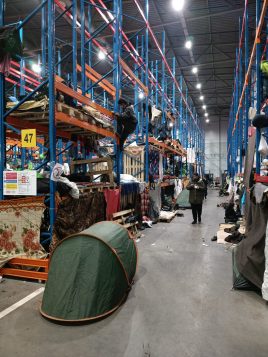
These are difficult times for Belarus too. Fr Aniskevich tells us: “Many have lost their jobs. The number of poor people is increasing. However, we are not so poor as not to have enough to share the small amount we have. We learned the stories of these migrants, their hardships, the world they left behind. Through their stories we understood that when a war breaks out people are forced to flee in search of a safer place to live, and a better life. Many of them leave not knowing where to go.
They flee with their families, selling all their possessions. They flee even though they do not know if they will arrive dead or alive. But they escape – hoping to start a new, better life.”
A message to Europe. “We must open our hearts to see what is happening around us,” said the director of Caritas Belarus.
“Only by doing so will we realise that there are many people suffering in our midst. They are neighbours. They have arrived next to our homes and need our help. The world is divided, wounded by conflicts, weakened by the pandemic. These are all realities that are asking us to have a good heart.”
“My message to Europe, but especially to young adults, to children, to adolescents, is: don’t forget Christian values. Where there is no God, there is a vacuum, and the vacuum is filled in the shopping malls. Therefore, if we lose faith, we lose life”.

